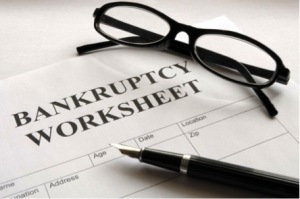Should You File For Bankruptcy?
Individuals as well as families that are crushed under mountains of debt are given the opportunity of filing for bankruptcy by federal law; to put an end to the harassing calls of creditors and so that they can pay-off the debts gradually. Thus, people can file for bankruptcy and effectively eliminate their debt to get a new start in life.
There is no doubt that filing for bankruptcy is a complex procedure, with lots of technicalities involved. However, firstly, you have to decide whether you should file a bankruptcy or look for other alternatives. This is because declaring bankruptcy does not always prove to be as advantageous as expected.
If you too, owe your creditor; but do not have enough resources to pay it off, and are now thinking about filing, then go through the considerations and bankruptcy alternatives below that can help you to take the most suitable decision.
Important Questions To Ask Before You File For Bankruptcy
Is filing for bankruptcy the solution to your problem?
When people start receiving calls and letter from the creditors for their money; they immediately think of declaring bankruptcy. It is extremely important to first analyze that whether bankruptcy will resolve your issue or make it worse.
Before filing for bankruptcy, make a list of debts that you owe to the creditor. Then, figure out the goals that you want to achieve through this declaration. Discuss all of your financial details with your bankruptcy attorneys and seek their advice to avoid any inconvenience.
Are you eligible to file bankruptcy?
Filing for bankruptcy is not solely in your hands; rather, in order to do so, you have to qualify within certain criteria that have been set by the federal court. There are separate requirements for Chapter 7 and Chapter 13.
For Chapter 7 bankruptcy, your annual income should be less than the average set by the law. Whereas for Chapter 13, your total debts should not be more than a certain limit.
What is the value of your property?
Evaluating the market value of the property you own is probably the most important consideration to be made. When filing for Chapter 7, you are allowed to keep some of your property. However, bankruptcy trustees do have the authority to confiscate and sell it.
For Chapter 13, all of your property is safe and there is no risk of confiscation. However, you have to pay a particular amount for your unsecured credits.
Bankruptcy Alternatives
Is there any other door you can knock on for help? Search for all the alternate options and their success rate, before filing a bankruptcy. If you think any other option is more convincing then opt for it.
One common alternate to declaring bankruptcy is negotiating with the creditor yourself. Instead of involving a third part that might consume more time and money; you can talk to the creditors directly and ask them to extend the time period of your debt. They might agree to settle the issue, without going into any legal complications.
